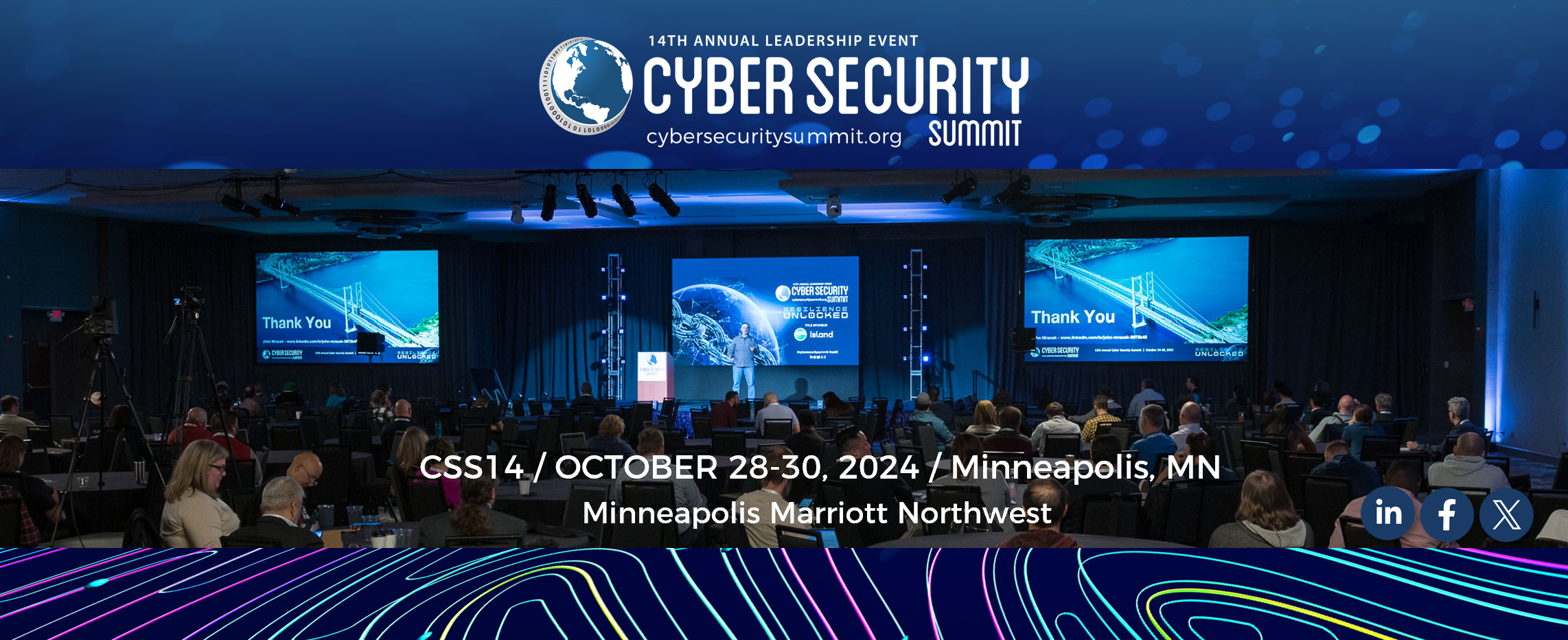2.28.24
EDITOR’s NOTE: My role as Communications Director involves outreach with our professional association industry partners, and one of the first meetings I attended was a chapter gathering of the Military Cyber Professionals Association. Think Tank member and MCPA President Brian Morgan introduced me to the group, I gave a quick Summit pitch, and stayed for some people and pizza time. A former member of the military, Cheyne Taylor, introduced himself as a guy working a full-time gig and a future graduate of the UW Stout master’s program. Here’s a bit more from Cheyne as we kick off our 2024 Think Tank blog series. -Elizabeth Stevens, Director
ES: When we first met at that MCPA meeting, my recollection is that you inquired about the various MCPA, early bird and student discounts, hoping to leverage the best deal. I mentioned the volunteer alternative, which is how you joined the event team at the Summit. Talk a bit about your first Summit experience.
CT: My first Summit went very well. As a graduate student, I do not have a lot of disposable income, so volunteering was really the best way for me to experience the Summit. Giving my time was the easy part. I find it difficult to start a conversation when networking because I’m more of an introvert. However, I knew that this event was a true goldmine for opportunities and wisdom from experienced professionals, so I forced myself to do it. There were so many amazing speakers that I learned quite a bit.
I also enjoyed connecting with various professional organizations and the vendors. Even though I’m a student, I found talking with different vendors beneficial too, so I could learn more about the services and technology that’s being used in the cybersecurity space currently. All the staff and volunteers were amazing to work with. We worked very well with each other, and if there was a specific session we wanted to see or an individual we wanted to network with, there was always someone willing to step in.
ES: You demonstrated great competence and customer service over those three days – we dubbed you MVP (Master Volunteer Professional) for the support you provided. Talk about some of the sessions you attended – including any that you caught from the recorded version after the Summit – and what you learned. Did you find the content and quality you wanted?
CT: With the theme of the Summit being on resilience, Evan Francen, CEO of FRSecure, delivered a fantastic talk on resilience and really made it timely by using a natural disaster as an example. Another great talk was the FBI Breakfast. I really liked how the topics spanned many aspects of the resilience theme. Again, there were just so many amazing presentations that it’s challenging trying to choose a favorite. Overall, I thought there was great content for everyone, whether they’re a student or CISO. The quality of each presentation I attended was excellent. The presenters were very knowledgeable on their respective topics also.
ES: The need to recruit, engage and retain tech workers is ever-present. This year you joined the Summit Think Tank as a student and industry partner liaison. Talk a bit about continuing education, the value of an advanced degree, and how students might make some sense of the many certification options out there. There’s so much to consider!
CT: I have always been an advocate of lifelong learning. However, in today’s job market being a lifelong learner is absolutely essential to stay marketable. I personally am pursuing an advanced degree and hopefully another one after I graduate this year, so I think advanced degrees are great. However, the Cybersecurity and Information Technology space is very broad, it’s like saying you want to join the military, so I don’t think every position requires an advanced degree. I believe that everyone should pursue some sort of additional education or training after high school, whether it be obtaining a certificate, a PhD, or something in between. If I could offer a piece of advice to someone trying to decide on pursuing advanced study, I’d suggest aligning their interests to identify what they want to do in cybersecurity, and then search for those jobs on a job board like LinkedIn to see what employers are requiring. It’s easy to get overwhelmed with all the certifications, and it seems like most schools offer a cybersecurity degree of sorts.


There are 0 comments